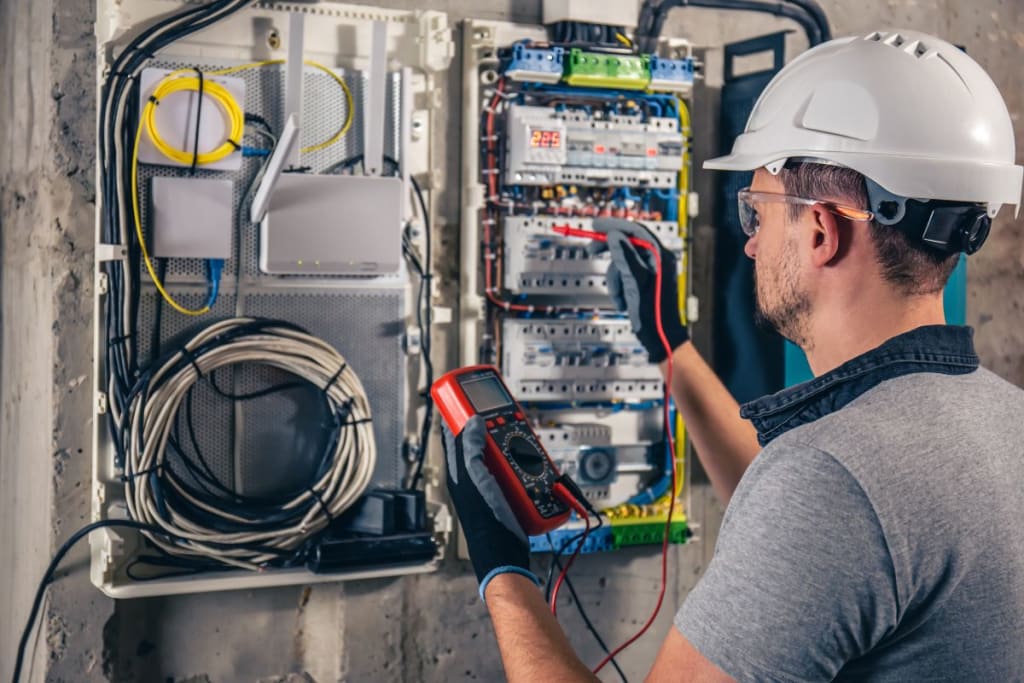How Frequently Do I Need to Test My Electrical Appliances?
Inspection, Testing & Certification

Introduction
In today's modern world, electrical appliances have become an integral part of our daily lives. From refrigerators to televisions, we rely on these devices for our convenience and comfort. However, it's crucial to ensure the safety and proper functioning of these appliances. Regular testing and maintenance play a vital role in preventing accidents, minimizing the risk of electrical faults, and prolonging the lifespan of our appliances. In this comprehensive guide, we will explore the frequency of testing electrical appliances and provide essential tips to keep your devices in top condition.
How Frequently Do I Need to Test My Electrical Appliances?
Testing the electrical appliances in your home or workplace should be a priority to ensure safety. The frequency of testing depends on various factors, including the type of appliance, its age, and its usage. Here are some guidelines to help you determine how frequently you should test your electrical appliances:
1. New Appliances
When you purchase a new electrical appliance, it's essential to check its safety features and compliance with industry standards. Most new appliances undergo rigorous testing during manufacturing. However, it's still recommended to perform a visual inspection and basic function test before initial use. Refer to the manufacturer's instructions for specific guidelines.
2. Portable Appliances
Portable appliances, such as toasters, hairdryers, and electric kettles, are commonly used in households and offices. These appliances should be visually inspected regularly to identify any signs of wear, damage, or loose connections. The frequency of comprehensive testing, including electrical safety testing, may vary based on their usage:
Low-Usage Appliances: If you use a portable appliance occasionally or seasonally, it is generally recommended to test it every 1-2 years.
Moderate-Usage Appliances: For appliances that are used frequently but not daily, testing every 1-3 years is advisable.
High-Usage Appliances: Appliances that are used daily or heavily, such as those in commercial kitchens or industrial settings, should be tested more frequently, typically every 6-12 months.
3. Fixed Appliances
Fixed appliances, such as built-in ovens, air conditioning units, and water heaters, are permanently installed in a location and connected to the electrical supply. These appliances should be tested to ensure their electrical safety. The recommended testing intervals for fixed appliances are as follows:
Low-Risk Environments: In residential properties with minimal electrical load and low-risk factors, testing fixed appliances every 2-4 years is generally sufficient.
Medium-Risk Environments: Commercial premises, rental properties, and public buildings with moderate electrical loads and usage require testing every 1-2 years.
High-Risk Environments: High-risk environments, including hospitals, schools, and industrial facilities, should conduct testing every 6-12 months to ensure safety and compliance.
4. Specific Appliances
Certain appliances may require specialized testing due to their unique characteristics or potential risks. These appliances include:
RCD (Residual Current Device): RCDs, also known as safety switches, are crucial for protecting against electric shocks and fires. They should be tested every 6 months to ensure their proper functioning.
Power Tools: Power tools used in construction or DIY projects should undergo regular testing, typically every 3-6 months, to identify any faults or damage.
Medical Equipment: Medical equipment, such as X-ray machines and MRI scanners, should be tested according to the manufacturer's guidelines and regulatory requirements.
Frequently Asked Questions (FAQs)
1. How can I test my electrical appliances at home?
Testing your electrical appliances at home is essential for safety. Here are some steps you can follow:
Visual Inspection: Check for any visible damage, frayed cords, loose connections, or signs of wear. Ensure there are no exposed wires or broken parts.
Function Test: Turn on the appliance and ensure it operates as expected. Listen for any unusual sounds or vibrations. Check that all buttons, switches, and settings work correctly.
Power Cord Examination: Inspect the power cord for any damage or kinks. Make sure it is securely connected to the appliance and the power outlet.
Earth Continuity Test: For appliances with an earth connection (e.g., three-pin plugs), use a continuity tester to check if the earth connection is intact.
Insulation Resistance Test: Using a portable appliance tester, measure the insulation resistance to ensure there are no electrical leaks or faults.
Remember, if you are unsure or uncomfortable performing these tests, it is best to consult a qualified electrician.
2. Are there any signs that indicate the need for immediate appliance testing?
Yes, there are certain signs that indicate the need for immediate appliance testing:
Frequent tripping of circuit breakers or fuses when using the appliance.
Sparks, smoke, or burning smells coming from the appliance.
Excessive heat emitted by the appliance during normal operation.
Persistent electrical shocks or tingling sensations when touching the appliance.
Noticeable changes in performance, such as reduced efficiency or inconsistent operation.
If you encounter any of these signs, discontinue using the appliance and have it inspected and tested by a professional as soon as possible.
3. Can I perform electrical appliance testing myself, or should I hire a professional?
While basic visual inspections can be done by homeowners, comprehensive electrical testing is best carried out by a qualified professional. Electricians and testing specialists have the knowledge, skills, and equipment to perform thorough testing and identify potential electrical hazards.
Professional testing ensures adherence to industry standards and regulations. It provides a higher level of accuracy, reduces the risk of overlooking critical issues, and offers peace of mind knowing that your appliances are safe to use.
4. Is it necessary to keep records of appliance testing?
Keeping records of appliance testing is highly recommended. Documentation helps you track the testing history of each appliance, ensuring compliance with safety regulations. It also serves as evidence of your commitment to maintaining a safe environment, especially in commercial or rental properties.
Recorded information typically includes the date of testing, appliance details (make, model, serial number), testing results, and any actions taken (repairs, replacements, etc.). These records can be valuable during inspections, insurance claims, or when selling or renting a property.
5. Are there any legal requirements for appliance testing?
Legal requirements for appliance testing vary depending on the country, state, or local regulations. In many jurisdictions, workplace health and safety regulations impose obligations on employers to ensure electrical appliances are regularly tested and maintained for the safety of employees and visitors.
In some regions, landlords are also required to conduct periodic electrical safety inspections in rental properties. Familiarize yourself with the specific legal requirements applicable to your location to ensure compliance.
6. Can regular appliance testing prevent electrical accidents?
Yes, regular appliance testing plays a significant role in preventing electrical accidents. By identifying faulty appliances or potential electrical hazards early on, testing helps mitigate the risk of electrical fires, electric shocks, and other accidents.
Routine testing not only ensures the safety of individuals but also protects property and reduces the likelihood of costly damages. It promotes a proactive approach to electrical safety and fosters a culture of awareness and prevention.
In conclusion, maintaining the safety and proper functioning of electrical appliances is crucial for both residential and commercial settings. By understanding the frequency of testing and following best practices, you can ensure a safe environment for yourself, your family, employees, and visitors.
Remember to conduct visual inspections regularly and perform basic function tests on your appliances. Seek professional assistance for comprehensive electrical testing, especially for fixed appliances or when encountering signs of potential hazards.
Keep records of testing to demonstrate compliance with safety regulations and to maintain a history of appliance maintenance. Stay informed about legal requirements specific to your region to meet your obligations as a homeowner, employer, or landlord.
Regular appliance testing is a proactive measure that can prevent electrical accidents, reduce risks, and provide peace of mind. Prioritize the safety of your electrical appliances by incorporating testing into your maintenance routine.






Comments
There are no comments for this story
Be the first to respond and start the conversation.